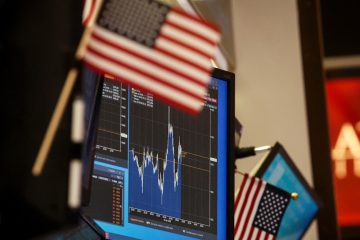Opportunities Abound in Healthcare
U.S. healthcare spending amounted to $ 3 trillion in 2014, up 5.3% from 2013, according to the Center for Medicare Services.
Looking ahead, aging Baby Boomers and technological advances should ensure that healthcare spending will grow faster than the economy for at least the next decade.
Thus, income investors should have some holdings in this important sector, if only as a hedge against their old-age medical expenses.
Of the healthcare sector’s 2014 spending, $ 972 billion went to hospitals, $ 604 billion to physicians and clinical services, $ 298 billion to prescription drugs, $ 156 billion to nursing care facilities, $ 114 billion to dental services, and $ 856 billion to other areas of healthcare.
In other words, there are a wide range of areas in which to invest.
Ethical Speed Bumps
There’s one problem with the healthcare sector, though: It’s full of scams. The sector depends on government for a large portion of revenues and on dodgy negotiations with insurance companies for much of the rest.
In addition, much of the sector’s revenues depend on intellectual property rights that are thoroughly gameable by lawyers. Thus, the ethics of the sector may make you want to wash your hands after dealing with it.
Valeant Pharmaceuticals International Inc. (VRX), for example, has a major business strategy that involves buying old drugs (on which sick people depend) and then raising their prices by 1,000%.
And Martin Shkreli, once active in pharmaceutical sector mergers and acquisitions, was recently arrested for securities fraud. Undoubtedly, we don’t want to do business with such people.
Choosing Wisely
The healthcare sector has also suffered from very high valuations for a number of years, so dividend yields from established companies can be a bit skimpy. Ultimately, the combination of ethics problems and high valuations means you need to look at decent dividend yields with a very cold eye, indeed.
PDL BioPharma Inc. (PDLI), for example, is a pharmaceutical royalty company with a truly eye-watering 19% dividend yield and an earnings record in recent years that appears far too good for the company’s 1.8 times price-to-earnings (P/E) ratio.
In this case, there appear to be no ethical problems (other than Valeant’s in not paying royalties due, apparently), but the company is very dependent on a set of “Queen” patents that have more or less run out.
PDLI has done a number of deals to replace the related revenue, but it’s not clear to what extent it has succeeded. At this stage, PDLI can be regarded as no more than a speculation, with the success factors involved being far too complicated for an outsider to assess effectively.
Nevertheless, there are a few companies in the healthcare sector that pay attractive dividends, excluding healthcare real estate investment trusts (REITs), which I’d regard as a potentially attractive part of the real estate sector.
- GlaxoSmithKline Plc (GSK), the major U.K.-based global pharmaceutical company, pays the best dividend of the major pharmaceutical companies and yields 5.5%.
It issued a profit warning in early 2015 that knocked back the shares. So while it’s trading at just 7 times historic four-quarter earnings, it’s trading at 16.3 times prospective 2016 earnings. Nevertheless, the company’s combination of yield and solidity make it an attractive healthcare holding for income investors.
- Meridian Bioscience Inc. (VIVO) produces diagnostic test kits for various diseases worldwide. With a quarterly dividend of $ 0.20 per share, it offers a yield of 4.3%. It just announced first-quarter profits (to December 31) of $ 0.21 per share, up 13% from last year, although revenues declined 2%.
The company is trading at 21.8 times historic earnings and 20.5 times 4-traders’ estimated earnings for the year to September 2017. Its balance sheet is also in good shape, with zero debt and $ 50 million of cash.
- Finally, there’s PetMed Express Inc. (PETS). Many jokes have been made at the fate of Pets.com in 2000, the ultimate dot-com bust, which promised to make money by shipping cans of cat food across the country.
Indeed, I was among the first to do so, taking time off from my Election Night 2000 coverage for UPI to write a piece mourning its demise (which occurred that day) headlined “Gone for Long Walkies.”
However, it appears the jokers were wrong. If the product line is confined to pet medication, this is a perfectly good business. That’s what PetMed Express does, and it gives us a yield of 4.1% based on an $ 0.18 quarterly dividend.
The company is trading at 17.8 times historic earnings and 16.8 times 4-traders’ estimate of earnings for the year to March 2017. The company has zero debt and $ 42 million of cash, so the dividend should be solid.
Good investing,
Martin Hutchinson

